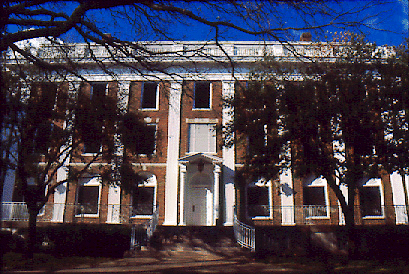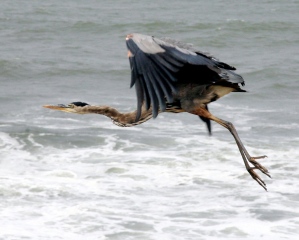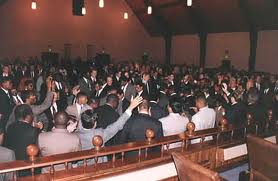“. . . the longing for God is a prayer said in the bones. . .”
February 12, 2014 1 Comment
Yesterday I wrote of the unexpectedly strong life of the feelings old folks discover in themselves. “Weeping may indeed endure for a night,” but we don’t yet know if “joy cometh in the morning” as the writer of Psalm 30 asserts.
A few hours after I wrote I was in my office talking with students. A young woman brought the first joy of the afternoon. I was able to help her see that what Flannery O’Connor speaks of as “mystery” is not the Sherlock Holmes suspense of “what will happen next?” or “who is the murderer?” O’Connor’s mystery is one in which the writer
. . . believes that our life is and will remain essentially mysterious, [in which] he looks upon us as beings existing in a created order to whose laws we freely respond, [and] what he sees on the surface will be of interest to him only as he can go through it into an experience of mystery itself. His kind of fiction will always be pushing its own limits outward toward the limits of mystery, because for this kind of writer, the meaning of a story does not begin except at a depth where adequate motivation and adequate psychology and the various determinations have been exhausted (O’Connor, Flannery. “Some Aspects of the Grotesque in Southern Fiction.” Mystery and Manners. New York: Farrar, Straus and Giroux, 1960).
The student with great wonder asked, “Then the mystery is why the people in the story do what they do?” Yes. The mystery in the story.
The meaning of my story “does not begin except at a depth where adequate motivation and adequate psychology and the various determinations have been exhausted.”
Would O’Connor have been appalled at my applying her understanding of fiction to my own (non-fiction?) life? I think not. She would have said that the writer of this kind of mystery must have experienced it in their own life, or they could not know to write it.
It is the mystery that “does not begin except at a depth where adequate motivation and adequate psychology and the various determinations have been exhausted.”
This is the stuff of great fiction because it is the stuff of our lives.
What adequately explains the life of my feelings and/or actions? I’ve been in therapy of one sort or another virtually non-stop since about 1970. I know myself (at least in clinical, pathological terms) about as well as my poor limited brain can know. I even know a little of why I cried for about six hours yesterday.
Really.
Of course, if the doctors had been less excited about a patient with Temporal Lobe Epilepsy and focused instead on the Bipolar II Disorder that, once diagnosed, was obvious for anyone to see, I’d have saved much time and money.
But even those amorphous, but correct diagnoses do not—not even close—begin to explain who I am and the mystery of my “existing in a created order to whose laws [I] freely respond.” My brain for some reason misfires (electrical some impulses fire differently from most of the rest of you). So?
That in no way explains my response to the “created order to whose laws” we all respond with our own peculiar set of actions and reactions.
Now, don’t get all Freudian or Jungian or Frankl-ian, or even Dr. Oz-ian on me. Or analyze away if you want. See if that gets you any closer to the mystery of who I am. Or who you are, for that matter.
I wrote yesterday about singing hymns (because I’ve played them on the organ all my life, and they are the music within reach when I want music in my mind rather than ruminations on why a university that can raise One Billion Dollars one year needs to cut budgets the next) and quoting Psalm 30, and being aware with overwhelming grief of the horrors to which human beings subject each other. One of the writers whose blog I love to read and with whom I carry on a cyber-exchange commented on my post,
Singing hymns, quoting Psalms, and weeping over human suffering and folly. Has anyone suggested that your life is becoming increasingly more God-haunted?
My response was, “Still.”
Dr. Howland, Dr. Weinberg, Dr. Bret, Dr. Schomer, Dr. Agostini, and all the other psychologists, psychiatrists, and neurologists who’ve had a crack at explaining my brain have not yet given me a hint as to the mystery of who I am and why or how I [exist] in a created order to whose laws [I] freely respond.
Don’t get all squirrelly on me and raise the silly debate about evolution versus creationism or the big bang versus God. Believe in Jesus or believe Richard Dawkins. Just don’t bother me with it.
On May 5 of this year I will teach my last class as a full-time practitioner of my profession. I will no longer be able to say I am Professor Knight of the Discovery and Discourse program in the English Department at Southern Methodist University.
It breaks my heart.
It leaves me at sea to think about it.
What is the mystery of who I am that insists that part of me IS that professor? Everything about this experience is mysterious to me. I had no idea I cared so deeply about teaching. I
had no idea I could be as frightened as I am pondering not being a part of any institution. This is not simply fear of insecurity—although it is that. It is the profoundest fear of asking the question, now that there is little else to do—no responsibility to get in the way—“Who am I?”
I stumbled upon this poem yesterday. It has nothing to do with psychology or religion or philosophy or politics or science. It says at least some of what I’ve been trying to say here.
“Speaking in Tongues,” by Mary Rose O’Reilley
I go to church every Sunday
though I don’t believe a word of it,
because the longing for God
is a prayer said in the bones.
When people call on Jesus
I move to a place in the body
where such words rise,
one of the valleys
where hope pins itself to desire;
we have so much landscape like that
you’d think we were made
to sustain a cry.
When the old men around me
lift their hands
as though someone has cornered them,
giving it all away,
I remember a dock on the estuary,
watching a heron get airborne against the odds.
It’s the transitional moment that baffles me—
how she composes her rickety
grocery cart of a body
to make that flight.
The pine siskin, stalled on a windy coast,
remembers the woods
she will long for when needs arise; so
the boreal forest composes itself in my mind:
first as a rift, absence,
then in a tumble of words
undone from sense, like the stutter
you hear when somebody falls
over the cliff of language. Call it a gift.
(O’Reilley, Mary Rose. “Speaking in Tongues.” Half Wild: Poems. Baton Rouge: Louisiana State University Press, 2006.)


